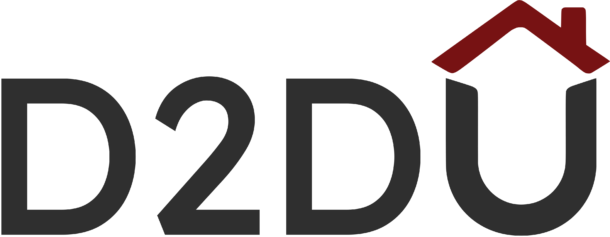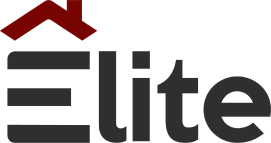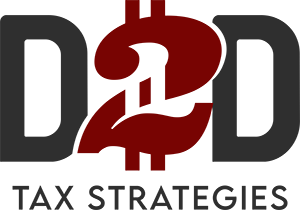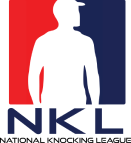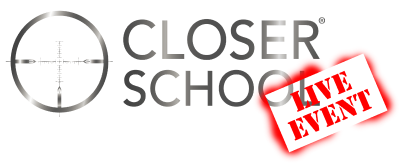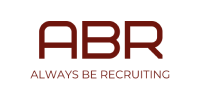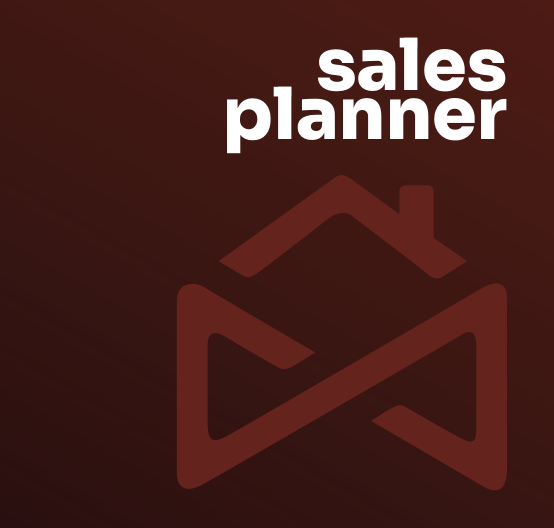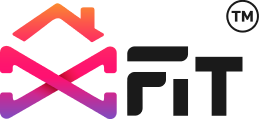Ad 00:06
This episode is brought to you by the D2D Business Bootcamp, the number one event for business owners and leaders in the direct sales industry. Come to our two-day boot camp and learn from Sam Taggart and the D2D experts who have consulted over 200 businesses on how to increase sales, get more recruits, become a better leader and streamline business systems. Go to bootcamp.thed2dexperts.com for dates and location. Limited tickets available. Go to bootcamp.thed2dexperts.com and reserve your seats today.
Sam Taggart 00:41
Today, we are on our Facebook Live everybody. And what is up Facebook Live if you guys know Jess Philips you should say what’s up just give him some love. Give him a thumbs up be like we love you, just as a juggernaut has been in the industry longer than most everybody. And he is going to drop some serious fire right now. So I guess I’m just gonna record right into the live. So okay, so before I dive in August, some background on quad tiva and they are vendor of ours and they were adorable. Last year. They’re kind of an up and coming big tech solar play. And Jess is one of the partners that equity vibe, but he has a huge background in Dory. So domitian and knock doors he started in solar in 2010 with Arik solar is one of the founders there. And for those that don’t know arc, I’m from Utah. So of course I know arc they literally built the commercial project for the Rio Tinto that’s like the stadium where Real Salt Lake plays. They were the big ones. Every billboard was alrik. And yeah, I mean, he’s got it right here in his background. So those that are watching this, this is these are some of the solar projects he’s done. I mean, they’ve done the largest one solar projects of the year commercially in America, and we’ll jam on all this but like megawatts and megawatts and megawatts of battery systems really retrofitted carports and these cool like solar things on roofs. And anyway, so very, very cool background of doing many, many millions of dollars in solar, as a business owner, and then COVID hits, and he’ll tell his story, but He then moved into the Texas Tech play, because there’s an element of bringing tech to solar, to make it more streamlined, make it simple, because back in 2010, I guarantee Jess was literally pen and paper on a whiteboard moving his projects, you know what I mean? Like, I guarantee you, there’s an element of, you know, like, our K sickness, because this was pre This is like pioneering of solar. And anyway, so I don’t want to steal your thunder and I’m not gonna, I’m not gonna like go into it. But you know, he was a big vendor door to door con, they’re gonna be there this year. And so go check out cortiva What’s the website cortiva.com you and for some really cool soul solar software. But I guess Jeff, welcome to the show. Man. I appreciate you getting on here and taking the time and really being part of it. So tell us I guess I gave you the I guess rather very bad version of that background. Give us your 62nd version of objects like who are you your story a little bit?
Jess Phillips 03:23
Yeah, no, thanks. I really appreciate being on excited to be a part of this and you know, share what we have hopefully share some value today with everybody listening and first and foremost, proud to say that I we started this whole thing knocking door selling solar. I’ve done four different products. I always say got one that’s really unique. So religion, a lot of people have done solar obviously. alarms for a year, but I did a right after my mission in 2006. We did rock chip repair for windshields.
Sam Taggart 03:59
Yeah,
Jess Phillips 04:00
so not many people got that one on the resume. So it kind of unique. That was actually maybe my favorite. I mean, the mission I learned the most and had the most cool experiences. But that was a very unique thing. The cool thing about that is you could just kind of walk into people’s garages a little bit and kind of see if they already have you had to get pretty aggressive but it’s great. You’re just like you already have a rocket on your windshield. Like I can do it for free. It was kind of fun, but interesting one did for a year.
Sam Taggart 04:24
That’s cool. That’s Yeah, so
Jess Phillips 04:25
But yeah, jumping in my background did also worked in corporate America, which wasn’t good for me for four years to take some rough edges off me and learn, learn some of those things learned HR and all that stuff. Right. And we started our own company, met my business partner partner in corporate America. He was a big executive. And we started a company 2010 arek. And it grew four or five different states. We’re doing hundreds of residential jobs, but started out of a garage you know, like started as a sales dealer like many people probably listening and and next thing we knew we had 260 something And I think we had 13, install crews at our peak, maybe a little more, start doing a lot of big commercial, like we talked about, including like Rio Tinto Stadium. And the biggest one, the one that’s really fun a lot of people like to hear about is, if you’re a solar nerd, is such a loss. So this is actually inherent in Utah. So some of the stats on this project. First of all, it’s a $29 million project. It got featured in Forbes and Bloomberg. And actually one 2019 energy project of the Year for the entire nation. So if you think about natural gas projects, or like power plants, this actually one energy project of the Year by utility dive. And the reason why is because that battery right there, the sown in battery 600 of those. So there’s one in the living room of every apartment unit. It’s kind of fun, there’s people living there, and they actually named their batteries like one of the family members. So it’s kind of a tradition they have when a new new person moves in, they like put a little label on and say, Hi, my name is and they name their battery. So kind of fun. So the community can run off grid. And what makes it super unique in the first of its kind in the world. And this is actually a real picture of, of the project today is because it’s connected to the grid, we partner with Rocky Mountain power, they were part of the process. And they actually have access to pull power from the batteries during peak times, you know, four or five, six o’clock at night, they’ll buy the power during peak times and pay the pay the owner of the apartment complex peak power, so they’ll actually it’s just like real estate or buying low and selling high but with energy now, you know, doy Hansen, who owns a projects a real estate, that’s how he became a billionaire, right? His commercial real estate. And so now he’s doing the same in energy. And so this is called a virtual power plant. So not only can they go off grid, but also utility has access to battery. So it’s awesome. We got to speak about it solar power International, which happen to be in Salt Lake in 2019. So that worked out really well for us. And we had total stats, like I said 5.3 megawatts of solar area. So think about the panel was actually specially made for this project. It’s a 435 watt panel. And that was in 2019, is when we start to build
Sam Taggart 07:12
a 35 watt panel in 2019. We’re selling like to that we were selling like 260s, then to set to seven Yeah,
Jess Phillips 07:19
and obviously a little bigger 72 cell size, you know, with a commercial size, but still absolutely. So unique panel. For those of you guys that have been in Utah, that’s actually the training facility, that red building in the background out in Herrmann. So that’s another 1.1 megawatts of solar we did the year before. That buildings unique in itself, it’s the first it’s the only building that has, it’s actually the largest free span building in the worlds there’s no pillars holding up the roof. And there’s two full size indoor soccer fields inside. So it’s just crazy to be and you can go out there and they’ll let you play soccer there, though they play. Like they have softball games in that thing, all kinds of fun stuff. So really fun to be a part of those projects, learned a lot, met a lot of really great people great contacts over the 10 years doing that. And then we had sold our residential part of our company, and just a couple weeks before COVID hit. So our day to day cash flow we weren’t worried about anymore, we had so much commercial going on. And then COVID hit hit us pretty hard. We had $130 million dollars in projects just freeze or cancel. And we had brought on an investor. Just a couple years earlier, we’d grown so fast, we needed to bring on capital. And he kind of said, Hey, I don’t know what’s going to happen, I think we should just buy or sell the company. And that’s really all of a sudden, you know, some of it wasn’t even part of our decision. And me my original partner. I had resigned as CEO just that year before as we were growing and he wanted to take over and that was his decision. And so we found ourselves not knowing we’re going to do next and I had a really good friend, lifetime friend that was the VP of tech for katiba. And he said hey, I just want you to come see what we’ve been building. It’s been in this alpha and beta phase for the last year and two years and we’re getting ready to launch this thing and I want you to come check it out. That was just over a year ago, about May or June last year and I was blown away when I saw the quality of app I thought man if I would have had this app when I was knocking door selling so are my guys are our partners you know, like we would have saved so much time and money, close more deals. Definitely not that had the headaches of dealing with install because quality takes care of everything. It’s all in one place. So I just knew I had to be a part of it so big to get hired on and become a partner. They’re one of the executives one of the members of the executive team my role as chief sales officer. But really what I love to do is just put together partnerships and and that’s one of the reasons why we we saw you guys out and wanted to become part of what you guys are doing and really door to door comm was kind of our like, beta launch like hey, we’re we’re a real company. We’re here. We’ve been build this thing for years in the background and really showed it off to the public and it was a great response at the event and and we just we just opened up Arizona, Texas, Florida started off with California. going really well, like we just tripled in June. And we gained another looks like we’re gonna finish about another 30 40% growth for July. So I’m getting ready to open Colorado, Utah and some other markets soon. So yeah, that’s kind of my background and story and, and just super proud to be in the industry and glad I got to stay in the industry, you know, when everything went down, didn’t know what I was going to do next. So it was really fun to not only bring the experience in store, but I’m still learning and growing in the technology side of things and getting to do what I love most, which is just connecting with people seeing them get deals, their first deals on the front lines, man, that’s still what gets me excited.
Sam Taggart 10:36
That’s so cool. So, you know, those are listening. It’s like, you think about it, you have a door knocker? You know, instead alarms you did paint or dent repair or the doctor. And, you know, just to see where you’ve gone. I think so many people they underestimate the journey, right? They’re like, Oh, well, I had to resign as CEO, I’m sure there were some scary moments there. I had to fire sell a company. I’m sure they’re scary moments there. I’m sure there’s $130 million of projects. It’s like, Oh, that was fun to sell them. But now I’m gonna click that, you know, it’s like poof, like, I’m, I you say all these things so lightly, but I guarantee you when you’re sleeping at night, going to bed, you’re like, you’ve had many heart attack moments of just like what? Oh, yeah, so I guess, you know, it’s cool to hear the success stories. It’s cool to hear the roller coaster of an entrepreneur. So I guess I what were some of the biggest challenges that you you’ve ran into, as you’ve kind of taken the entrepreneurial journey, you know, because it sounds like you’ve had a lot of crazy roller coaster.
Jess Phillips 11:40
The best thing that the best thing has happened to me is I’ve just been surrounded by really good people. I remember people so was the first lesson I remember learning and like life or like business, like mentorship, and it was like, just surround yourself with really good people. I remember that from when I was like, 18. And so I’ve just done that. And that’s really helped me get through things. But yeah, like full transparency about things like I’d say just the mental, the emotional journey, right, like, going for, I mean, it’s not like we made a lot of money, we did really well built a dream house and, you know, have all the Tesla’s and all the things, and then all of a sudden, things stop. And, I mean, there’s time where I thought I was gonna lose my house, that was not long ago, you know, like, just just crazy how fast everything changes. And you try to try to learn the lessons you’re supposed to, so you can get through those. And all of a sudden, for me, like, some of that stuff just came together as I really focused on just like, you know, getting myself in a really good place mentally, emotionally, like, Who am I really? Am I just, am I arek? Who am I? Am I a solar company? Like who am I really, you know, and, and really focused on a lot of that stuff. And man, it’s amazing what’s happened, like, financially just been super blessed. And more importantly, I love what I get to do now, you know, some of that stuff. I mean, we started that company, we thought we might be have, like, 10 people working there. 20 people, and all of a sudden, there’s 250 people and 260. And like, I loved it, I loved working with the people, but man, I got to be a lot. I never thought it was gonna grow like that. And it just consumes you. And sometimes your business kind of runs you and said, Have you run in your business. So I really am grateful now that I found something just love what what I do. And so I guess one of the things that I’d recommend out there is just surround yourself with really good people, because that’s how I made it through the hard times the ups and downs. People you can trust and when you find those people man latch on to them, because sometimes that’s hard to find, you know, and then learn what you can along the way and then. Yeah, just be you know, I think I think, you know, understanding that, that that’s part of the journey, the ups and downs. I mean, everybody talks about that stuff, but it’s always different when you’re going through it. So yeah, some big alpha downs along the way.
Sam Taggart 13:55
So how do you say surround yourself with really good people? And, you know, like, hold on to them when you know, you’re gonna like, how did you find and vet good people? Because that I mean, that seems to be the challenge in business and everybody that’s listening to this, like, I’m good people, but it’s like, are you? a great question. Yeah. Like I really like you’re really am curious how you find them and how you hold on to them.
Jess Phillips 14:21
You know, what go to war together. When you go to war together, you get to see what they’re really like, and everybody, most people, everybody, at our core, I think are good people, but their values get challenged when things get really tough. And so for me, like I got to see my original partner Trump and sighs like, as we went through some really tough decisions, like should we sell our residential side should be we knew that was what that was going to do and how that was going to change things. Should we focus on commercial? Should we sell a company should we get into should we, you know, what should we do next? And I got to see somebody like him just keep his integrity throughout all of it, and his value system and so it was really To me when we started at katiba, that he became a part of it. So he’s now the chief operations officer. But he was so happy ending there, like he’s, he’s with me together, we’re still working here. And the same guy that made sure all those $250 million in projects went through the last 10 years is the guy that’s now a quiet team and making sure for our partners there that their projects are getting installed. So, so, yeah, I think you watch how people act during the low times, not just the High Times, that’s really the key. And that’s when you really can identify their true character. And when you see see them behave a certain way. And those times, you know, even on the personal level, you’ll see you just help people talk about it, they’re all going through some with my wife, or, you know, and how they talk about their spouse or, um, you know, one of my friends or whatever it is, like, usually, you can really tell a lot about a person, you know, the way they talk about other people, when they’re not around, just just your normal values and characters, all the cliches, a lot of them are true. And so when you see that, for me, that’s what I identified and, and then you just latch on to it, you know, once you because it’s hard, even getting those experiences to right like to actually go through some really tough together, sometimes it’s hard to just fabricate. So when you when you’re going through something tough like that. The highs are really easy to see people at their best, but the lows is where you get to really see their true character.
Sam Taggart 16:14
I love that. That’s, that’s, that’s great advice. And so what about like in commercial solar? I think this is an under talked about thing. I mean, I remember in my solar days, it was kind of like, Oh, do you do commercials like now and it just doesn’t make sense? Or it’s hard or it’s too much? Or, you know what I mean? Like you hear whatever excuse like, I guess what is the likelihood for somebody that’s maybe in residential to say, hey, I want to get into commercial? Why is that an underserved? market? Maybe some opportunity there? What would you What’s your two cents on commercial? Yeah, I think, you know, I
Jess Phillips 16:47
do think the right advice for most guys like they’re in residential is, it is really tough to get into, it’s so different. And even for me, like, we had a lot of success doing it. And it was a lot of fun to put those projects together. But they just take so long, and you never know, like, there’s so many variables, and they can do can just get killed out of nowhere, you know, like some CEO, or investors of their company take like, whatever, right, their budgets change. And so it’s really hard to feel like you’re in control of the sale. And I think that’s why a lot of residential guys struggle with getting into that. So what I would recommend is you find a good partner that that you can outlet a lot of your leads and stuff to, because I think there’s a lot of people that just have friends and family that are they know, you’re been in the industry forever, and they want solar and you’re like, man, they got a 200 kilowatt job, you know, for their apartment complex, they own the my uncle owns, I gotta figure this out. So find some good partners that you can kind of funnel that stuff to and that are good at, you know, creating the proposals, because it is a very different game. It’s just to go in and try, what I’d recommend is don’t try to go sell it yourself, don’t try to do the designs, it’s so different, you’ll get in trouble, even if you somehow do sell it, you’ll find a lot of issues along the way that you just didn’t see coming that are totally different. Like, we can talk about all kinds of stuff that even the utility gets in the way of and then it’s it’s really challenging. So, partner with experts, that’s their focus, that’s what they do, and make some great referral money doing that. And then you stay focused on on what you’re doing. And you’ll end up making more money overall, and, and, and be a lot happier. And it’ll still be fun to watch, you know, go by and say, Hey, I was part of that job right there that that commercial job, right, that would have never happened, you know, 10 years later, 20 years later, you’re showing your grandkids, your kids, everybody, you know, and that’s one thing I love about solar man, what we get to do every day in residential and commercial is, you know, for years to come, you’ll be able to say, Hey, I was a part of that I helped make that happen. So it’s kind of a fun thing we get to do in our industry.
Sam Taggart 18:39
That’s awesome. So I guess another question is, like, just where do you see solar going over the next 510 years, you know, you’re obviously part of the SPI you, you and now building tech and putting even more into it. You know, some people have the opinion like, hey, solar is done after the tax or just go ahead some people depending on if like we’re just getting started. So I am curious, your Outlook, you know, being in it since 2010, you probably keep your ear close to the ground. So like what’s your outlook on solar?
Jess Phillips 19:03
Yeah, super optimistic. Overall. We we know we’re in a disruptive industry, we’ve seen the growth right and disruptive gets used that word gets used a lot, but it’s just this type of growth, right? You saw with product light when the when the first cars came out, right, or microwaves or you look at the thing that’s neat about solar is we are part of really not only are we disruptive industry ourselves, but we’re part of two other very disruptive industries that are supercharging our disruption, so electric cars, right? I think everybody knows, like, if they don’t know Yeah, I don’t know how, you know, we look at Tesla and nobody thought I mean, that literally more valuable than some at some points depending on where the stock markets at then, you know, the second and third companies combined. So you look at electric vehicles, and that you talk about how much energy it’s going to take to transfer all the transportation from combustion engines to election. Vehicles, that’s going to require a lot more electricity. They say, I think Elan Musk said just a few years ago, that it’s about, it’ll actually mean we’ll need about an extra 30% electricity generated when we transfer our entire transportation fleet to electric vehicles over the next 10 or 15 years. So where’s the energy going to come from Oregon to build more coal plants, you know, stuff like that?
20:22
Well,
Jess Phillips 20:24
so what we’re going to do is, you have electric cars that are helping our industry, right. And then you also have batteries, right, that need for going off the grid, um, with emergency preparedness, but also it’s becoming more financially viable. And in in some situations like the virtual power plant, we created the first that’s kind of world as those continue to become a thing. One part of the story didn’t tell is, there’s now $100 million more of those virtual power plants being built in California by this a guy that bought our commercial division. So he’s doing six more of those in California retrofits on apartments he owns right now they’re being built. So as stuff like that becomes more available, you’ll you’ll be able to have homeowners that actually have a battery in their home. And now they can actually send power back to the grid and get paid for it. So I think in a lot of areas, you’ll start to see stuff like that happen. And, and so we have disruptive technology and batteries, cars, electric cars, and solar. So I think we’re here, here to stay. But as far as like the tax credit, you know, I always start off with the easy one, which is guys power rates are going up by 5% ish every year. So half the tap, you know, we’re 26%. And that thing’s going away in the next three years, like half of that bridge is already, you know, we already have the gap taken care of just from power rates increasing as far as the financial viability of it, you have soft costs, like finance fees are gonna have to come down stuff like that people will tighten the belt as we get closer to that. And then who knows that will ever go away. It just keeps getting extended, just like, you know, you have Yeah, you know, the oil subsidies have been extended for 6070 years. So why can’t Why can’t solar especially for how many jobs we’re creating A lot of that. So here’s another thing. So you are if you are part of the battle, so Rocky Mountain power, I remember one of the biggest reasons a lot I never even tell the story. They’re one of the big reasons I started what I started was in 2017. And they said, Hey, in November, so those that don’t know, in November, we’re going to shut down basically solar in Utah, similar to what we did in Colorado. And so I’m sitting here my whole like, most of my volume was coming from Utah, I was the VP of sales associates at the time. And so I’m sitting there like okay, what’s my plan B? Like I either move right it’s like yeah, move when a lot of people did I mean most people moved out just to their cell solar being a really cool thing and then and or I you know, kind of started this Facebook group I started this podcast and and I took the route of like, hey, worst case scenario, I’m gonna really full time to this door to door con and can’t knock this at the time was what it was called group and podcast. And I remember Kelly Walker was like, dude, you’re crazy. Like you’re making no money like why would you? Why would you do that? Like why don’t you just open up South Carolina or North Carolina you know, in some other market. And I watched you Arik I watched sunrun or Vivint. At the time, go to battle with the the Utility Commission and Rocky Mountain power. So tell us a little bit about kind of the battles with utility companies in the future solar, their fear their push back our leg to stand on, I guess, talk to us a little bit about that. is huge. Man. I was super, one of the coolest things. I’ve been a part of the hardest things as well. They’ve been did a fabulous job representing. We really helped push the Utah solar association was big. Everybody came together. It was fun, right? We were all competitors before. And it was fun to get together and go fight the same battle. So it’s kind of a fun experience. Got to know the CEO of Vivint. David Bible water really well. Gray guy, they brought their whole legal team. We worked with a governor. It’s fun stories. I mean, I’ll tell one fun story where Cindy crane was the CEO of Rocky Mountain power. And we got into a probably 12 people in the room with the governor at the very beginning. And she was really like, Look, solar is going crazy. We got to stop this right now. Like, there’s not a time and you know, just like you said, Sam, like, all of a sudden it was here and they said yeah, like 30 days before they’re closing it off. And he’s like, Look, that’s not gonna happen. I’ll never forget what he said. He said, Cindy, I don’t care how fast it’s growing. We need to get this I’ll tell you what I tell my kids, we’re going to get this right rather than get it fast. So it’s something I kind of took from the governor was really fun to see that happen. And that’s when I felt a lot better. I’m like, Okay, we got a chance the governor’s on board with this. So we actually got one of our clients, Deloitte Hansen, who’s a local, you know, billionaire owns a ton of real estate, big user of power, actually is friends with with Cindy crane, who’s the former CEO of Rocky Mountain power, and he knows both and so he called the governor said you need to get involved with this and check those out. So that’s actually how we got him involved and it was really good to see that process happening. It was about it was a nine month battle conference calls all the time and bunch of meetings but ended up good This actually, I got a picture actually of the setup of the day we did the settlement of governments down that Governor’s down there in the corner. You can see David Bywater and some other people. Yeah, that were there. And so really fun to be a part of it. But it was huge. I think it was big for our industry, because like you said, Nevada had just got shut down. And Rocky Mountain power was actually part of Pacific Corp, which is the same company as Nevada, you know. And so I think if we wouldn’t have won that, and I don’t know, we had a settlement, it wasn’t a complete, like, we got everything we wanted, if we wouldn’t have got that in might have set precedents for the rest of the nation in a different way. And so it’s really cool to be a part of that and see the process I learned a ton I mean, behind the meter and export rates and all the nerdy stuff that I never thought I’d be doing, you know, I just was selling solar panels door to door, you know, 12 years ago, so I learned a ton and got to be around some really smart people again, and super glad that we got the resolution we did that helps set precedents not only for Utah, but for the rest of nation. So yeah,
Sam Taggart 26:09
no, no, that’s exciting. Like I was, I was relieved obviously, when that all happened. I was like, Yeah, I still have a job. But then I still ended up like I was already so down this rabbit hole that I was like, I like this more and I have a bigger mission. So my mission was very similar like what you just experienced with the Utah solar commission, where you had all these competitors all of a sudden come together and fight a bigger cause. And I think a lot of times I mean that’s really what we’re doing is when people come to door door con it’s like guys like the the threats are like what happened in Florida. I don’t know if you followed the roofing in Florida, it’s like okay, they just said you can’t sell door to door roofs in Florida ever. And all the Florida I had a client in 250 million in roofing a year, shut down for last 30 days, they can’t sell. So the last 30 days imagine your 250 million a year and for last 30 days they could knock doors and you know who’s gonna go fight that that the company right who’s going to go come together like what you did with David Bywater and all these other big key key solar companies in Utah, there was a Utah solar commission that said we will go fight this together and you you saved a potential massive disaster that’s gonna slingshot forever. And part of the DDD association is working with different legal providers. And you know, we’ve already kind of started finding the right legal counsel. So like, active Nate Nate Wilcox, who is vivants old one, you have Shawn Rick’s who’s also vivids current. And a couple other cool like, people are all on board with this. It’s just a matter of funding it in a matter of organizing it and saying okay, if something like what happened in Florida, were to come up in the future. How do we band together as team even though we’re competing against each other? I get that but like, there’s a power and people playing team and on the streets. Yeah, battle it out. You’re like an MMA fighter like Oh, go fight and in the rink, but off the rink, like, yeah, go train at the same gym and be friends. Like it’s okay. Like
Jess Phillips 28:06
I would do you nail that is something I’ve observed about about what you’re doing as well as my my favorite. And it’s probably most lucrative partnerships actually came from meeting my competitors face to face and seeing who they really are. Versus like, oh, they’re a logo. They’re a company. The last two, I got to go meet Intermountain wind and solar found out he lives right down the street from me are my son and daughter dance together. Like, we’re in the same competition. Like, you know, I went into it like a week later, I’m in his house, chicken. I mean, this is a company we’re going head to head all the time. And then I got to learn. You be shocked at how much your competitors are actually just like you. And David Bywater man to have him come in like then to me about stuff like CEO stuff where he thinks I’m at his level. I’m like, dude, I you’re like, What are you talking about? Like, I have no idea what it’s like what you’re doing. But just to learn from those guys and realize, man, it’s it’s lonely what we do sometimes. And you’re looking for help from different groups and like your competitors know what you’re going through. And so I end up building some great friendships. And even lucrative partnerships later were like, Oh, my gosh, we need help on this commercial job. I know who to call. And in the past, you just looked at him as the enemy. And it’s amazing the power when you come together because you are doing the same stuff and having the same experiences and there’s very few people that can relate. So for me, that was the best thing I got out of it. Yeah, the settlement was great and super glad we all got to keep our jobs. But the friendships and partnerships that I got to learn from and still have today, were huge. So I see that and I think that was great advice, Sam that you touched
Sam Taggart 29:34
on and on a different level. We run like a mastermind group. You just be part of the mastermind group. You love it. Like we have 70 CEOs. We’re taking a Guatemala in October. And we do like calls and competitions. We compete them against each other. And it’s so fun because it’s like, wow, like why don’t we use the fact that we all deal with the same problem. Like you said, you’re like wow, CEOs can vent to other CEOs and create partnerships and we have, you know, alarm companies Pulling leads from solar and solar to roofs and roofs, you know, you know, all these different CEOs coming together and saying like, how do we work together to help each other instead of just live on our own little islands? And that’s actually like if somebody asked Sam like, what’s the favorite thing he does is it’s our experts mastermind group where now it really facilitating experiences for the CEO groups. And it’s, it’s really thought so well, dude, I, I, I anybody that’s listening to this thing, when you have a guy that’s been in it for over 10 years, 11 years and solar that’s kind of dinosaur in our industry. Yeah. And, you know, to be able to guys reach out to Jess and hit him up on LinkedIn or Instagram and reach out to quality but these guys have put gone from door to door to building tech to commercial, all this stuff to say, how do we be a resource or a plug for the solar space, and they’ve done a phenomenal job with that. And we appreciate you guys as a partnership. And we love what you guys are doing. And I think it’s cool to watch you guys keep disrupting the space. So anyway, keep it up, man. Thanks, Sam. This has been great opportunity. I last question I was asked is Do you have one piece of advice for the solar space just in general, like, give one simple nugget, then that’s worth what would it be?
Jess Phillips 31:20
Um, I think one of the most impactful things I learned none of it, nothing’s in original thought. And I’ll never forget we we we became good friends with n phase and we got to know that when they’re founders His name is Ragu biller. And he came and spoke at our company a few times. And just genius, right? This guy just super smart was there in the early days when they’re, you know, building burgers and and I remember I asked him a similar question and how was endface turn it around and done so well and, and his response was purity in focus. So one thing I see especially in our industry is indigestion from opportunity. We’re always looking at commercial or we’re chasing this or that I’m going to go get all these realtors and hit a Grand Slam. You know, just be focused on know what you do well, which for me, after all, buying all the digital leads and millions of dollars in that everything like I see is still seeing today, like door to door sales is still so reliable, it’s you can control it. And it’s real. Like it’s not just a plug because that’s who our audience is, hopefully today. But I when I meet with three or four companies every day all across the nation. When I see that a major at least the majority of their mix is from door to door. I know that I can rely on them to have success because it’s you can control it. There’s the ups and downs and everything else. So high purity and focus if you know what you’re good at and you’re knocking doors you’re selling deals like stay focused on your superpower and your strength.
Sam Taggart 32:49
I love that know that purity of focus you got you guys heard it firsthand from Jess Phillips guys. Appreciate hopefully you guys got some value out of this. I know it’s pretty solar focused. But then today like it applies to everybody. And if you if you like this podcast, please share this like this. Leave us comments. Let us know what you guys want to see more of. And hopefully you guys will meet and shake hands with katiba door con five coming up January 13 to the 15th. So Mark the calendar, don’t plan any company trips around them and make sure you’re there so appreciate it just well. We’ll talk soon. Okay, thanks much for having us on.





